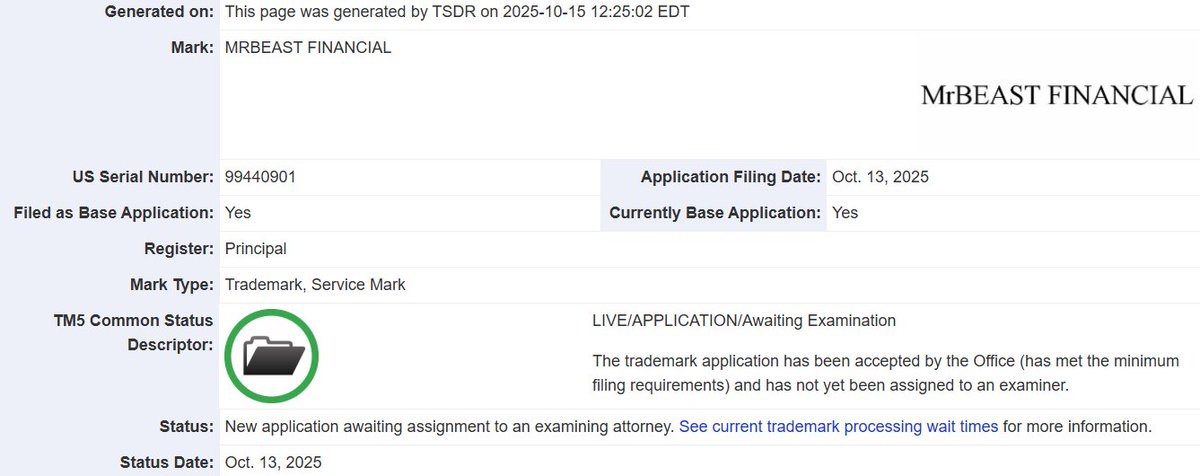BREAKING: @MrBeast has filed a trademark to launch his own bank.
The org will be called MrBeast Financial.
The filing was submitted on an intent-to-use basis, which under trademark law means there are genuine plans to bring this to life.
The org will be called MrBeast Financial.
The filing was submitted on an intent-to-use basis, which under trademark law means there are genuine plans to bring this to life.

• • •
Missing some Tweet in this thread? You can try to
force a refresh






